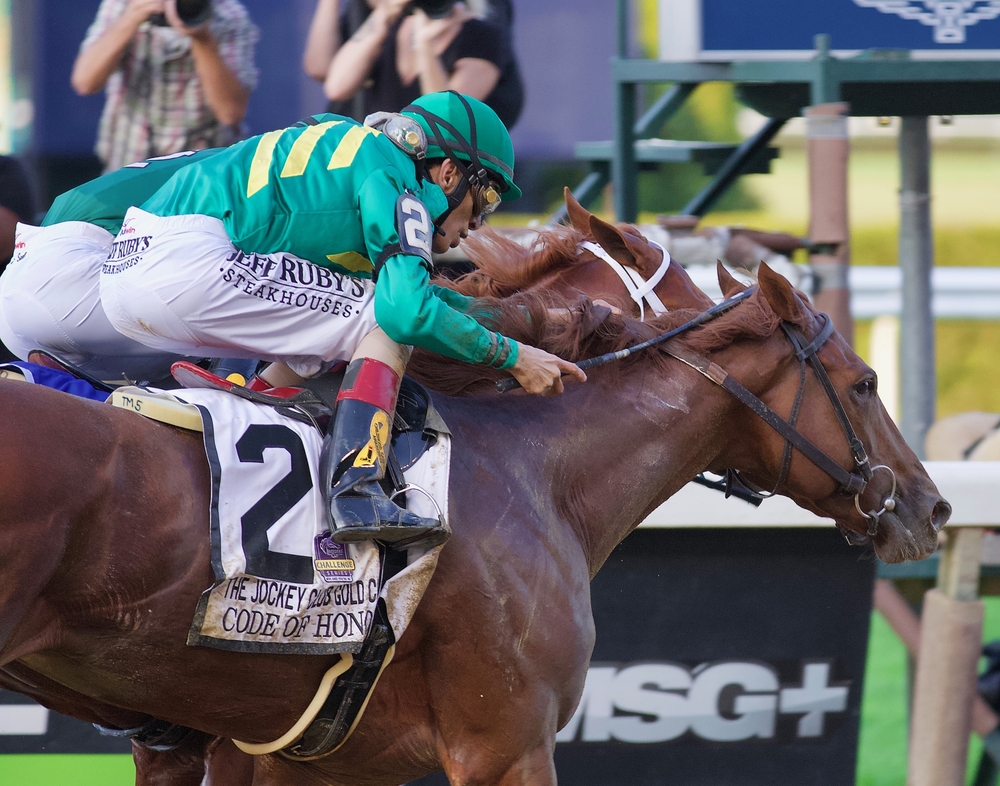In the realm of betting, the conservatism bias is a prevalent cognitive tendency that can impede a bettor’s performance. Initially, this psychological concept might be misperceived as a political term; however, it carries significant implications in various decision-making processes, including sports betting and financial investment. Conservatism bias leads individuals to give undue weight to their initial information and underreact to new evidence. Acknowledging and overcoming this bias is crucial for bettors aiming for success as it can restrict their ability to adapt to new information, thus limiting the improvement of their betting strategies.
The conservatism bias not only affects bettors’ responsiveness to fresh data but also poses a challenge when trying to exploit opportunities that require a quick and informed decision-making process. Sports betting, in particular, demands agility and the open-mindedness to revise predictions when confronted with current information about teams, players, or game conditions. To mitigate this bias, bettors must cultivate an adaptive mindset, thoughtfully integrating new evidence, and resist the inclination to overvalue their past judgements. By doing so, they can enhance their strategic approach to betting, increasing their potential to identify value and make well-informed bets.
Key Takeaways
- Conservatism bias in betting leads to an overreliance on initial information, which hinders adaptability.
- To improve betting outcomes, bettors should consciously incorporate and give appropriate weight to new evidence.
- Embracing an adaptive mindset aids in making more informed and strategic betting decisions.
Need Help Beating the Bookies?
Our expert betting tipsters have been taking cash off the bookies since 2014! If you need a helping hand with winning then why not check them out?
Browse Our Tipsters
The Outside Edge
Simple Yet Effective Horse Racing Tips from an Experienced Industry Expert
Visit PROFILE
Premier Greyhound Tips
Michael is Our Dedicated Greyhound Racing Tipster (with Results Dating Back to 2014!)
Visit PROFILEUnderstanding Conservatism Bias
With conservatism bias, the inclination is to place too much weight on past information and not enough on new evidence, which can heavily influence betting behaviours.
Defining Conservatism Bias
Conservatism bias is the tendency to underweight new information or evidence in the decision-making process. This bias leads individuals to retain their initial beliefs or predictions rather than adapting to the latest data. In the context of betting, this can mean favouring historical performance over current trends or new insights about teams or players.
Psychological Underpinnings
The root of conservatism bias lies in the psychological discomfort of changing one’s mind. People often prefer consistency in their beliefs, which serves as a cognitive shortcut to avoid the mental strain of re-evaluating information. This aversion to change can skew the bettor’s judgement, potentially causing them to overlook critical new information that should influence their bets.
Conservatism Bias vs Other Cognitive Biases
Conservatism bias is one among many cognitive biases. Unlike confirmation bias, which is the tendency to search for, interpret, favour, and recall information that confirms one’s preexisting beliefs, conservatism bias specifically involves a resistance to updating those beliefs with new evidence. It differs from overconfidence bias, where an individual’s subjective confidence in their judgments is greater than their objective accuracy. When betting, it’s crucial to differentiate between these biases to avoid making decisions based on flawed judgement.
Identifying Conservatism Bias in Betting
Conservatism bias can significantly affect betting behaviour, leading to missed opportunities and suboptimal wager decisions. Bettors often give undue weight to prior information and fail to adjust their strategies in light of new, relevant data.
Recognising Conservatism in Sports Betting
Conservatism bias in sports betting manifests when individuals rely heavily on historical performance data or personal experience while disregarding new evidence or statistics. For example, a football aficionado might place bets based solely on a team’s past victories, ignoring recent injuries or strategy changes. Signs of conservatism include:
- Unwillingness to update predictions after significant team news.
- Continuing to back the status quo despite odds movement suggesting alternative opportunities.
Impact on Betting Decisions
Bettors’ decisions are influenced by their inclination to stick with previous assessments instead of revising their expectations based on current information. Bookmakers can capitalise on this bias by adjusting the odds, knowing conservative bettors may not follow suit. Consequences for bettors include:
- Selection risk: Choosing a less likely outcome by not accounting for new variables.
- Value loss: Failing to secure favourable odds that reflect present realities.
Case Studies: Conservatism Bias in Action
Case studies demonstrate conservatism bias at play. During the football season, bettors might continually wager on a historically top-performing club, despite the club undergoing recent management turmoil. Another real-world example occurs when bettors disregard bookmaker odd shifts that signal insider knowledge, consequently maintaining their original bets. These scenarios underline the importance of adapting to new information in betting strategies.
Strategies to Overcome Conservatism Bias
To enhance decision-making in betting, one must adopt strategies that counter the conservatism bias effectively. These strategies focus on recalibrating the assessment of probabilities and ensuring that new evidence is integrated into one’s thinking.
Evaluating Probabilities Objectively
A bettor should strive for objectivity in assessing probabilities. One practical measure is to quantify beliefs numerically and adjust these numbers when new evidence presents itself. This helps avoid the typical risk-averse nature that characterises conservative bias, where individuals give undue weight to previous information.
For instance:
- Prior Probability: If there’s a 40% chance of an event occurring based on historical data,
- New Evidence: And new statistics suggest the probability should be adjusted to 50%,
- Objective Adjustment: The bettor must recalibrate their decision-making process to reflect this evidence.
Importance of Diverse Information
Individuals are encouraged to seek out diverse sources of information to challenge their preconceptions. Reflecting on contrasting viewpoints can mitigate against the tendency to overweight established beliefs.
- Source Diversity: Explore various information sources (experts, data analytics, etc.).
- Reflect on Discrepancies: If new data conflict with existing beliefs, they deserve a thorough evaluation.
Leveraging New Evidence Effectively
Incorporating new evidence effectively into the decision-making process is crucial in overcoming conservatism bias. A bettor must identify the relevance and reliability of the new information and adjust their beliefs proportionately.
- Relevance: Determine if the new evidence directly impacts the bet’s outcome.
- Timely Integration: Update the evaluation process as soon as reliable evidence is available.
- Reliability Check: Critically analyse the trustworthiness of the new information.
By implementing these structured strategies, bettors stand a better chance of making calculated and informed decisions, thereby potentially increasing their success rate in betting environments.
Practical Applications in Sports Betting
In sports betting, the goal is to maximise profits while minimising risks. To achieve this, punters must refine their betting strategy, manage their bankroll effectively, and exploit market inefficiencies. Here’s how they can apply these concepts tactically.
Adjusting Betting Strategy
A sound betting strategy encompasses recognising one’s conservatism bias—tendency to undervalue new information—and amending bets accordingly. Bettors should analyse recent performance data of teams and adjust their predictions instead of relying solely on past statistics. Incorporating live data such as player injuries or weather conditions can drastically influence game outcomes and should shape betting decisions.
Bankroll Management
Bankroll management is crucial for long-term betting success. It requires setting aside a specific sum of money, separate from personal finances, solely for wagering purposes. Allocating a consistent percentage of one’s bankroll to each bet, typically between 1%-5%, helps to safeguard against damaging losses. Staying disciplined with the bankroll ensures longevity in sports betting, despite short-term volatility.
Benefiting from Market Inefficiencies
To gain from market inefficiencies, a bettor should locate scenarios where the sports betting markets have not fully accounted for new information. These situations often involve a mismatch in the sportsbook’s odds compared to the bettor’s calculations of the rightful odds. Capitalising on such discrepancies, a practice known as ‘value betting’, can prove profitable. Bettors need to be quick to act before the market corrects itself, as efficient bookmakers adjust the odds based on the aggregate betting pattern and the vig—the bookmaker’s fee for placing the wager.
Impact on Investment Decisions
Investors often encounter conservatism bias, which affects both financial and betting decisions. This cognitive hindrance can lead to suboptimal choice-making, as it causes an overreliance on past information and an underestimation of new evidence.
Similarities with Financial Investing
Conservatism bias has notable parallels in both betting and financial investing contexts. Initially, investors may heavily weight their original analysis or historical market performance, thus being reluctant to update their decisions in light of new, pertinent information. This inertia can result in holding onto losing bets or investments longer than rational analysis would advise. Emotions often exacerbate this bias, as individuals might irrationally cling to the hope that ‘things will turn around’, disregarding counter-evidence.
For instance, in financial investing, an investor might ignore the latest negative earnings report of a stock due to an entrenched belief in the company’s long-term prospects. Similarly, in betting markets, a bettor might overlook a team’s recent string of losses because of their historical success.
Incorporating Disciplined Investment Principles
To counter conservatism bias in betting decisions, one can incorporate disciplined investment principles into their strategy. This requires a structured approach to budget management, a clear understanding of the odds, and an adherence to a predetermined set of rules regarding when to place or avoid bets.
Investors should:
- Assess each bet independently of past outcomes, focusing on the current evidence.
- Set a fixed budget for betting to ensure that any decision is within their financial means and does not trigger an emotional response.
- Apply a rule-based approach, where decisions are made based on a clear analytical framework, preventing personal biases from influencing the outcome.
By adhering to these disciplined investment principles, the investor or bettor can minimise the impact of conservatism bias, leading to more informed and potentially profitable decisions.
Analytical Tools and Techniques
In tackling conservatism bias when betting, one must equip themselves with analytical tools and techniques that can effectively identify and correct for inherent biases. These tools enable bettors to base decisions on data rather than on mental shortcuts that can lead to systematic errors.
Quantitative Analysis
Quantitative analysis entails using mathematical and statistical models to understand probabilities and outcomes. Bettors should:
- Collect historical data on events, considering variables that impact results.
- Develop models that can predict outcomes based on this data.
- Test these models against new events to validate and refine them.
Utilising these techniques lets bettors replace biased intuition with evidence-based forecasting.
Cognitive De-biasing Methods
Cognitive de-biasing methods are strategies designed to overcome inherent biases and mental shortcuts that can lead to erroneous conclusions. Bettors can:
- Identify bias in their thinking patterns through reflection and feedback analysis.
- Challenge assumptions regularly by seeking out information that contradicts their beliefs.
- Take an outside view by considering how other bettors would approach the problem.
- Slow down decision-making to allow thorough examination of the evidence.
By incorporating these cognitive techniques, bettors become more aware of their biases, thereby enhancing judgement and decision-making skills.
Psychological Factors in Betting
The psychology of betting is intricate, with successful punters often needing to master emotional control and navigate high-stress scenarios. These psychological factors play a crucial role in ensuring that decisions are made based on rationality rather than impulse.
Emotional Control
In betting, emotional control is the individual’s capacity to maintain composure when faced with outcomes, both wins and losses. They should be able to keep excitement in check to avoid overconfidence and manage disappointment to prevent ’tilt’—a term derived from poker where players lose their strategic approach due to emotional responses. Here are strategies to foster emotional control:
- Pause and Reflect: Take a momentary break after each bet to assess mental state.
- Set Limits: Establish strict boundaries for both losses and wins to maintain discipline.
Dealing with High-Stress Scenarios
High-stress scenarios in betting can stem from various aspects, including the pressure of large stakes or rapid changes in odds. Stress can cloud judgement, leading to rash decisions. It’s imperative to have strategies to cope with such conditions:
- Preparation: Gathering data and formulating a plan reduces impulsivity.
- Mindfulness Practices: Techniques such as deep breathing exercises can calm the mind.
With the rise of social media influence and its ability to amplify emotions, bettors are often more susceptible to stress and pressure. Therefore, a methodical approach towards betting, which includes preparing for the volatility of the activity and not allowing emotions to override logic, is crucial in prevailing over psychological barriers.
Social and Media Influences
In understanding the intricacies of conservatism bias when betting, one must consider the roles played by advertising and social media. These platforms shape decisions and perceptions in the gambling domain.
Advertising’s Role in Betting Decisions
The betting industry extensively utilises television and online advertising to promote its products, effectively influencing consumer behaviour. Advertisements often present betting as an exciting leisure activity, encouraging viewers to participate based on the thrill rather than informed decision-making. This constant barrage of betting ads on television especially during sports events, creates a sense of familiarity and can lead to an overestimation of winning probabilities.
- Television
- Prevalent during live sports
- Highlights the excitement of betting
- Online Platforms
- Targeted ads based on user behaviour
- Potential to create an illusion of easy wins
Social Media and Peer Influence
Social media amplifies gambling behaviours through peer influence and shared betting tips. Platforms like Twitter and Facebook are filled with gambling content, from shared successes to tips. Users might be swayed by a friend’s betting win posted online, not considering the numerous undisclosed losses. The atmosphere of community endorsement can perpetuate conservatism bias by valuing popular opinion over new or individualised information.
- Peer Sharing
- Displays wins more than losses
- Encourages following the crowd’s decisions
- Influence of Tips
- Can create confirmation bias
- Often spreads unchecked or unverified information
Advanced Betting Concepts
Proficiency in understanding complex betting strategies is fundamental for bettors seeking to gain an edge. The section ahead delves into advanced concepts crucial for informed decision-making in the betting sphere.
Understanding Bookmakers’ Odds
Bookmakers and sportsbooks craft odds to reflect the probabilities of various outcomes while also incorporating a margin to ensure profit. Bettors should scrutinise these odds, recognising they are not mere reflections of likely results, but also tools used by bookmakers to balance their books. A keen analysis involves:
- Identifying Value: Assessing when odds are higher than what one’s own calculation of the probability would suggest.
- Market Movements: Observing odds shifts and understanding the implications of such changes related to new information or market sentiment.
Exploring Hedge Betting
Hedge betting is a sophisticated technique applied to either lock in profits or mitigate losses. This strategy is particularly pertinent when a bettor has an open position that may result in a draw or a loss. Key aspects of hedge betting involve:
- Risk Management: By placing a bet on an opposing outcome, bettors can ensure some level of return, reducing volatility in their betting portfolio.
- Strategic Planning: Understanding when and how much to hedge requires discernment; situational calculations are necessary to decide the optimal hedge bet sizing to balance potential returns against possible risks.
In the dynamic realm of sports betting, mastery of advanced betting concepts like understanding bookmakers’ odds and the strategic use of hedge betting can significantly augment a bettor’s potential for success while combating biases that might impede clear judgment.
Frequently Asked Questions
The following questions address common concerns and offer strategies for bettors looking to overcome conservatism bias in sports wagering.
What strategies can help counteract biased judgement in sports wagering?
Bettors can combat biased judgement by actively seeking diverse perspectives and engaging in probabilistic thinking. They should analyse a wide range of data and consider the potential outcomes based on the current situation rather than solely past trends.
How does one minimise the influence of past events on current betting decisions?
To minimise this influence, it is crucial for bettors to assess the relevance of past events to the current context. They should focus on the latest and most pertinent information relevant to the event they are betting on.
In what ways can bettors avoid the pitfalls of readily available information impacting their bets?
Bettors should critically evaluate the sources of their information and distinguish between data-driven insights and mere opinions. They must also be wary of information that confirms pre-existing beliefs without proper validation.
What techniques aid in managing risk more effectively in the context of sports betting?
Effective risk management involves setting predefined limits on wager amounts and diversifying bets. Bettors should avoid chasing losses and instead rely on systematic approaches that take into account the variance inherent in betting.
How can bettors improve decision-making by recognising their own psychological predispositions?
Awareness of one’s own cognitive biases, including conservatism bias, can significantly improve decision-making. Bettors should reflect on their decisions and consider whether they are unduly influenced by outdated information or personal biases.
What approaches are beneficial in maintaining objectivity when placing bets on sporting events?
Maintaining objectivity involves scrutinising betting options without letting emotions dictate the decisions. Bettors should employ quantitative analyses and maintain a disciplined strategy when evaluating potential bets.





